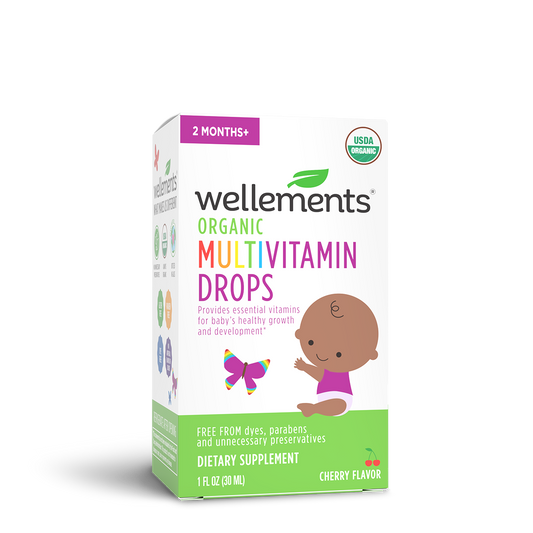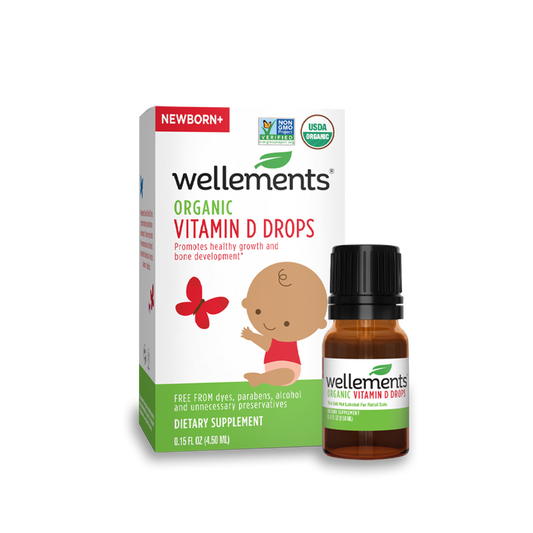How Breastfeeding Prolongs Passive Immunity for Your Infant
| updated:Share

It is no secret that breastfeeding your baby is important, which is why the American Academy of Pediatrics recommends that you exclusively breastfeed your baby for approximately the first six months of his or her life.1 After that, the AAP recommends introducing appropriate foods while continuing to breastfeed for up to a year or perhaps longer.
Research shows that breastfeeding can boost your baby’s passive immunity.2 But you may be wondering why this happens and what’s in your breastmilk that has such a positive impact on your infant’s health. Here are a few things you should know about your baby’s immune system development and the different ways breastfeeding improves immunity.
Baby’s Immune System Development
Early in your baby’s fetal development (approximately the fourth week of pregnancy), some of the cells that are dividing at a rapid pace are getting ready to become immune system cells.3 These cells (which are called hematopoietic progenitor cells) divide rapidly at first. But as your fetus continues to grow, the hematopoietic progenitor cells begin to slow down their division processes.
Early progenitor cells are carried by the baby’s blood to certain organs known to assist the immune system (including the thymus, liver, and spleen). During the second and third months of pregnancy, some of these cells begin to specialize into T cells (which are very important for immune function). By the fourth month of pregnancy, many of these T cells are fully functional and ready to fight off pathogens. Your baby has also developed B cells (which are also immune cells) by the fourth month of pregnancy.
Even though your baby has developed its own immune cells by the fourth month of pregnancy, it doesn’t need them yet because it is safe in the womb (which provides a sterile environment). As the baby gets close to being delivered (during the last three months of pregnancy), passive immunity is provided from you through antibodies that are passed through the placenta to your baby.
Antibodies are immune system proteins that protect against viruses and bacteria. The number of antibodies you pass on to your baby depends on your own immunity. For example, if you have not had chickenpox, you will not pass on any chickenpox antibodies to your baby and he or she will not be protected.
But if you have had chickenpox, you will pass some of your chickenpox antibodies on to your baby to provide some degree of protection from the condition. It is important to realize that passive immunity in your new baby is only temporary. It will begin to decrease within the first few months or even weeks after birth.
Ways Breastfeeding Improves Immunity in Babies
Even though the immunity you pass on to your baby through your placenta begins to taper off in a matter of weeks, you can prolong protection to your little one by breastfeeding. Breast milk also contains antibodies, which means you can continue to give your baby passive immunity through your breastmilk even after the passive immunity from the placenta has waned. The colostrum you produce for the first few days following your baby’s birth is especially important because it’s chock-full of antibodies.
How Long Babies Carry Their Mothers Immunity
As mentioned, babies carry passive immunity from their mothers’ placenta for a few weeks to a few months after birth.4 If you breastfeed, you can prolong passive immunity by continuously providing your baby with antibodies through your milk. Passive immunity to diseases such as rubella, measles, and mumps can last as long as a year. Immunity to conditions such as Haemophilus influenza type b and whooping cough decreases faster.
3.8 /
5.0
(153)
153
total reviews
Multivitamin Drops
Sale price
$14.99
For help boosting your baby’s immunity even further, consider using Wellements Organic Vitamin D Drops or Organic Multivitamin Drops. These trusted formulas contain gentle ingredients that are safe for infants and growing babies and may help boost immune function.
4.2 /
5.0
(86)
86
total reviews
Vitamin D Drops
Sale price
$11.99
Resources:
https://www.cdc.gov/breastfeeding/data/facts.html
https://pubmed.ncbi.nlm.nih.gov/9892025/
https://www.chop.edu/centers-programs/vaccine-education-center/human-immune-system/development-immune-system
https://www.nhs.uk/common-health-questions/childrens-health/how-long-do-babies-carry-their-mothers-immunity/




